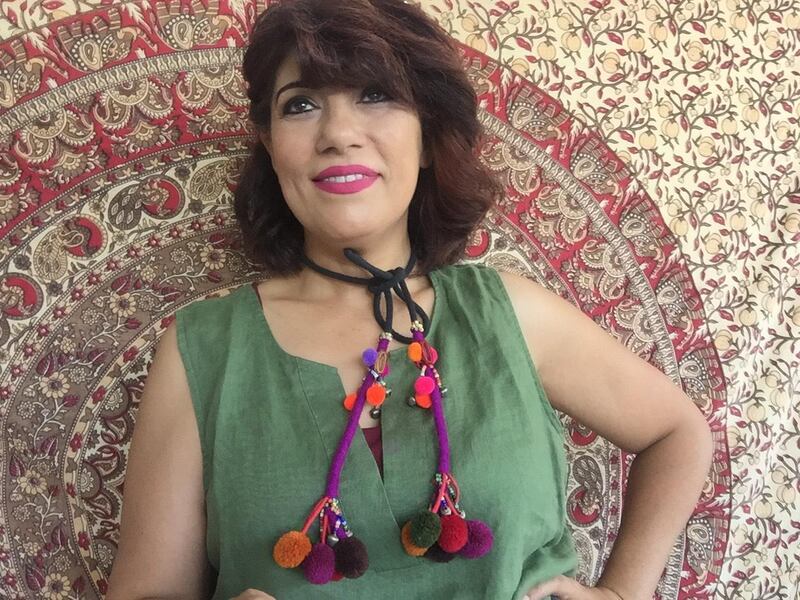The author Mai Khaled will tackle the controversial subject of taboo and expectation among Egypt's middle and upper classes at the Literaturhaus at Nadi literary salon series in Alserkal Avenue on Saturday.
Khaled will open the conversation with a short introductory piece on creative writing, Story Telling is my Fate since I Became the Puppet of My Own Self!, before reading from her 2007 novel The Magic of Turquoise. In it she tells the story of two women, Leila and her aunt Nunu. Ater Nunu falls into a coma after an accident at sea, Leila explores her aunt's artwork. Each piece represents a member of the family or an important family event. Nunu's paintings tell of an earlier romance and aspirations to be an artist in a family that considers a career in the humanities disgraceful.
The book looks at the upper middle-class in Egypt from the 1960s to the 1980s, switching between the narration of aunt and niece. An English translation by Marwa Elnaggar was published by the American University in Cairo Press in 2011.
“I wanted to write something aesthetic but after I had written it, I realised that I had really put the spotlight on this social class,” says Khaled. “Everybody says that the middle-class is the most important class, the ideal social class, the best standard of life. Yes, they were good and I myself am one of the middle-class, but they have their faults.”
Nunu is pressured to marry her cousin and study medicine but advises her niece to stay true to herself. This creates its own set of pressures on the student.
________________
Read more:
[ Zaki Nusseibeh: Reading stories and sharing tales about Abu Dhabi ]
[ Farah Chamma selects her favourite peers and gives advice on creating poetry ]
[ Author Fadi Zaghmout: 'Feminism and female equality is as important to men as for women’ ]
________________
“The middle-class will do things thinking they are good but can have the wrong idea of things,” says Khaled. “Marriage is the best example. Middle-class families in Egypt wants girls to get married at an early age. Love isn’t so important. You have to marry the guy who loves you, not the one who you love or the one who is financially able to support [you]. He shouldn’t be necessarily be rich but has a respectable job, from their own point of view. To have their daughter marry a doctor, they will sacrifice anything.”
Khaled battled to work in media as a radio presenter, translator and dubbing actress. She has authored five novels, three collections of short stories and a travel book.
“I imposed my dream,” says Khaled. “Yes, it was difficult. It wasn’t easy; I'm an only child and my parents are overprotective. I did what I wanted. I'm fighting for my dream but smoothly, without any hassle. It’s a matter of how to balance between all the requirements of life. It's about priority and time-management. It’s hard to satisfy everybody, but if you don’t satisfy yourself, you won’t be able to satisfy all the people around you.
“A little secret? It’s about quality time. You don’t have to spend a lot of time with people to satisfy them.”
She is now working on her sixth novel, title, which takes place between Cairo and Tbilisi, Georgia - a city that inspired her on visiting a literary festival there.
“After I finish it, I'm going to start tap dance classes,” she says.
Mai Khaled performs at Literaturhaus at Nadi on Saturday, at 4pm. The talk will be moderated by the arts and culture writer Anna Seaman. Email rsvp@alserkalavenue.ae for bookings






